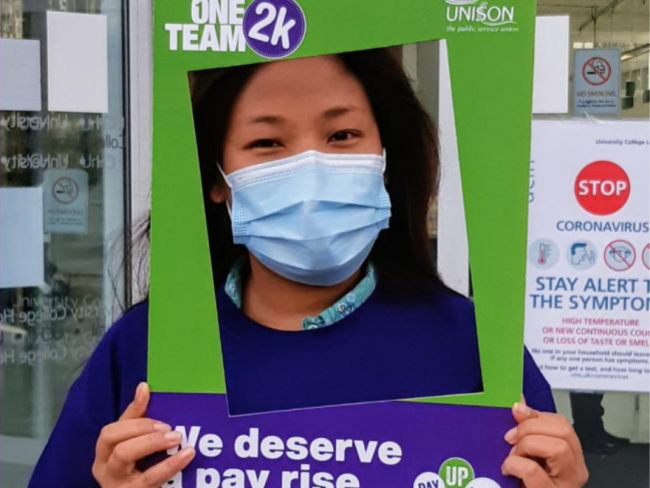
Unison staff at UCLH hospital, London, are part of the campaign for a minimum £2,000 pay rise. Pay is fundamental to retaining and recruiting nurses trained here in Britain. Photo Unison.
The NHS is preparing for winter and a predicted second wave of Covid-19 infections. The service must also look at how it has dealt with patients referred for investigations and treatment for other conditions.
Early in lockdown doctors and nurses in emergency departments noticed that they were seeing far fewer patients. In other parts of hospitals elective (non-emergency) work was suspended. Staff were seconded to intensive care and acute medical units. These measures have largely ended. Ninety per cent of seconded doctors are now back in their old departments.
Trusts began some elective work again as early as April. Yet there is still much to do.
The lesson of coronavirus phase one is that restricting access to non-Covid services also carries a mortality risk. This must be weighed in the balance for the next phase.
The Royal College of Surgeons has drawn up a framework to help manage the backlog of elective operations and called on its members to implement it locally. This comprises a guide to surgical prioritisation, guidance on pre-operative CT imaging and on how to prioritise and manage essential cancer surgery.
There are lessons for NHS manpower too. The idea that we can solve workforce shortages by importing other countries’ trained staff is dead and buried. One consequence of the A-levels fiasco is that the cap on numbers of new students entering medical schools has been lifted.
• A longer version of this article is on the web at www.cpbml.org.uk.
